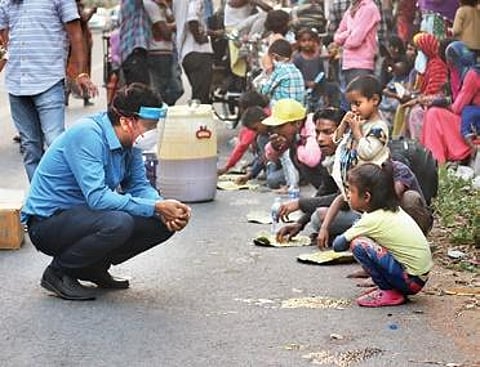

NEW DELHI: The first thought that came to Dr Prasun Chatterjee’s mind when the first lockdown was announced, was how were the poor, marginalised and elderly going to get access to food. Dr Chatterjee since then has made it his goal to feed as many people as possible.
“I had sent out a post on social media asking for carrying out the project of feeding the hungry, poor and older people and got a good response. We were on field from March 27 and since then we have visited slums and lanes helping those who have no access to food,” Dr Chatterjee said, whose NGO Healthy Aging India has been working on the frontline to serve the community.
Dr Chatterjee is also working as an Associate Professor, Geriatrician at AIIMS. With a 20-member-team and with the help of some local businessmen, Dr Chatterjee and his team have been feeding around 5,000 people daily including around 300 who are staying at seven old age homes.
Along with that, his NGO has been distributing masks and sanitisers and have also been raising awareness amongt people about the coronavirus pandemic.
“Our task has been made much easier because of the timely support of good samaritans from different walks of life who enabled valuable funds, volunteers who helped with getting the supplies, raw materials, and even kitchen services and help from institutions such as Faridabad Kalibari and Bharat Sevasharam Sangh,” he added.
Although other initiatives were carreid out by the government, Dr Chatterjee soon realised that due to the huge population being catered too, often food would not be enough to feed everyone queuing up.
“Communities, like those of the rag-pickers, faced social ostracism, and thus got least priority in terms of food distribution. It is extremely essential to serve food among these communities, as well as, to sensitise them about practices such as social distancing.